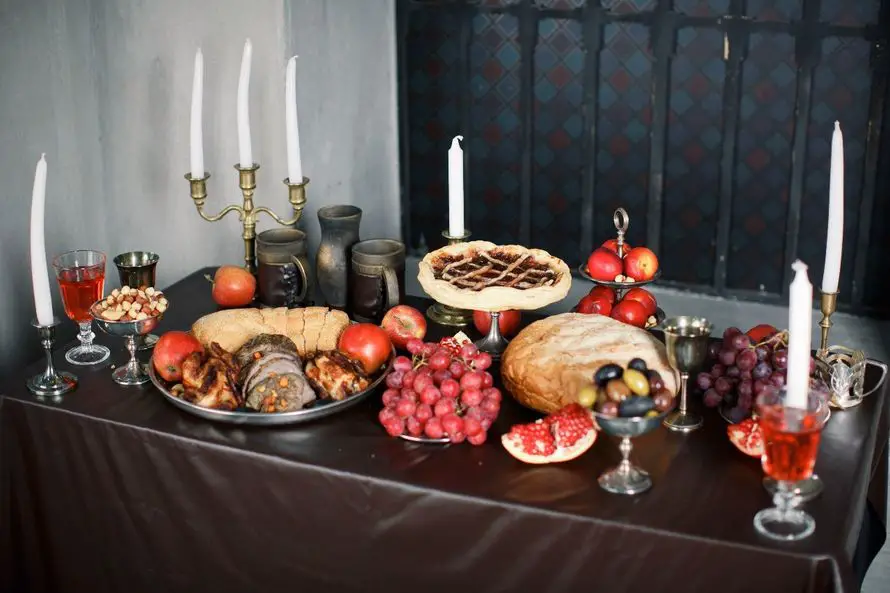The following was written by Caroline Barrow, a former SRAS Home and Abroad Scholar now working in Kazakhstan. Through an acquaintance there, she was invited to a traditional Russian funeral lunch – and shares her experience here.
Each culture has its own way of honoring those who have left this world. Russians do this in their on unique way. In addition to a funeral, family and friends gather for several Поминальные обеды, “Funeral Lunches” throughout the year after someone’s passing. There are four of these lunches on specific days—9 days, 40 days, 6 months, and one year after the passing. I had the privilege of being invited to one of these lunches, honoring a woman named Svetlana.

We met for our lunch at the столовая (cafeteria) in the factory where Svetlana worked. When we sat at the table, it seemed to be full already. There were свежие помидори и огурцы (fresh tomatoes and cucumbers), колбаска и сыр(sausage and cheese), хлеб (bread), блины (Russian pancakes), конфеты (candy), and печения (cookies). For drinks, there was компот (stewed fruit juice), vodka for the men, and cognac for the ladies.
Interestingly, I noticed that there were no вилки (forks) on the table, only ложки (spoons). This is so that there is nothing sharp on the table. The first thing we ate was three spoonfuls of a tasty dish: кутья, a sweet sticky rice with raisins. Кутья is that is typically found only at religious observances. It is also traditionally associated with Christmas and Easter.
Officially, the Orthodox Church disallows alcohol at поминальные обеды. In practice, however, alcohol often plays a prominent role in the traditions common to these lunches. Before the waitresses brought us the первая блюда (first course), we took a shot in honor of Svetlana. Before we drank, we said “Царство Небесое.” Literally translated, this means “Kingdom of Heaven,” but the meaning in this usage is closer to “Rest in Peace.” In honor of Svetlana, a рюмка водки (glass of vodka) stood on the table throughout the lunch.
After that, the первая блюда arrived—a healthy serving of борщ (borsch). Following that was the вторая блюда (main course) which was котлеты с картошками (pork cutlet with potatoes). The last thing they brought us to eat was каша(porridge). This is traditionally eaten last at these lunches.
This tradition is a lovely way for friends and family to gather and remember whom they have lost. In doing so, they support one another and grow closer together. To find out more about Russian funeral traditions, click here.





